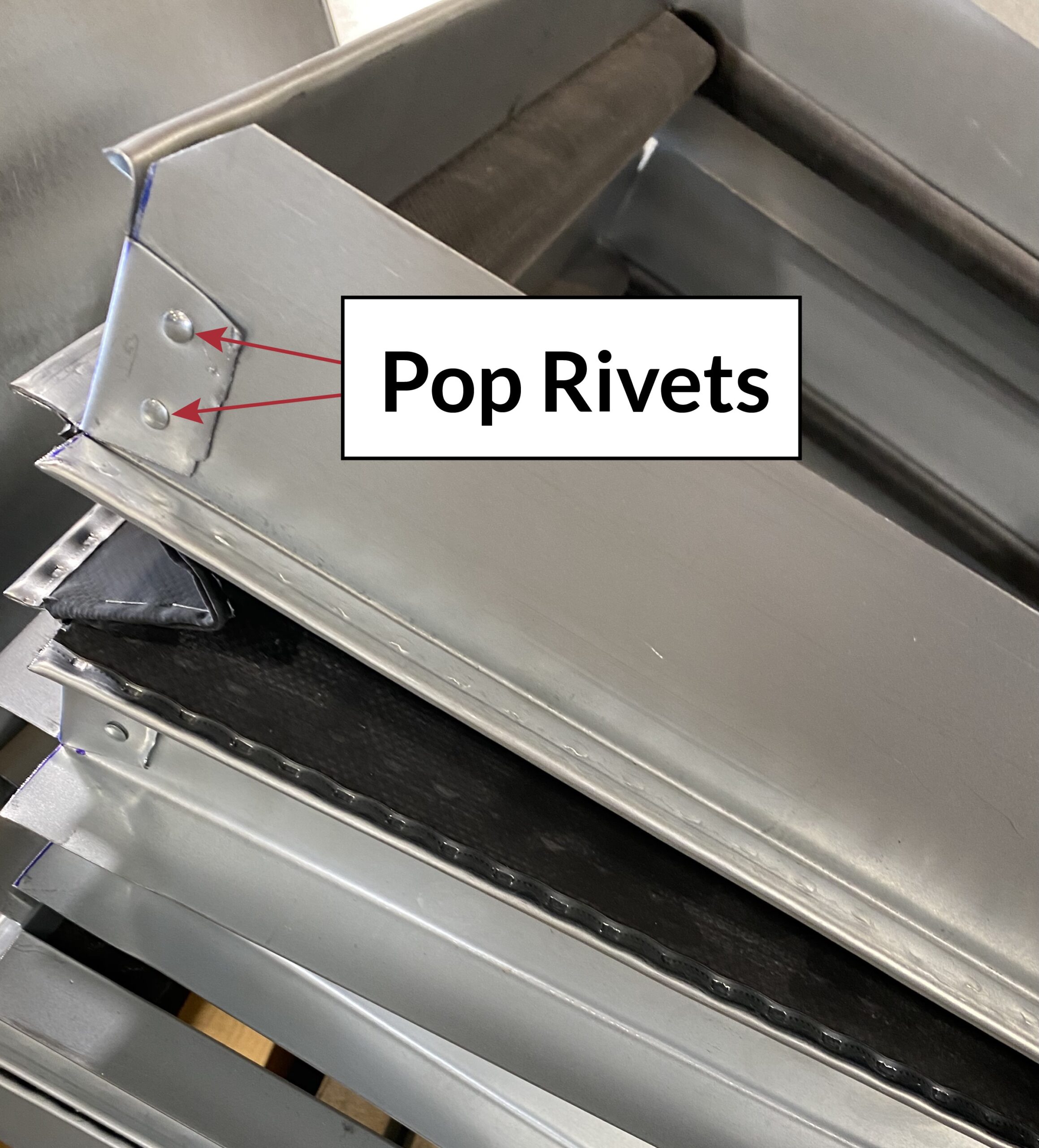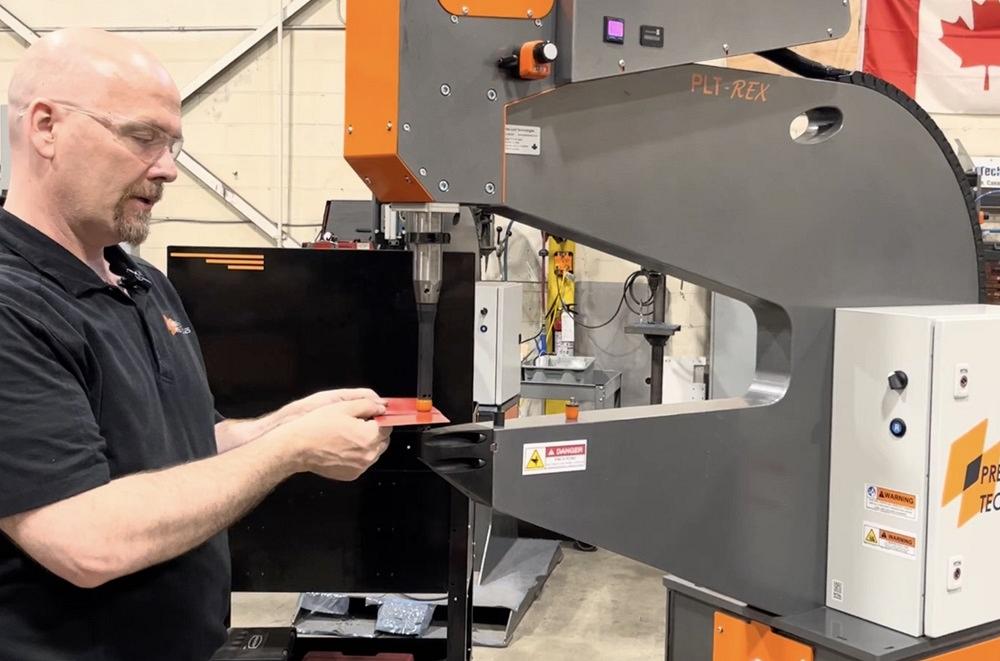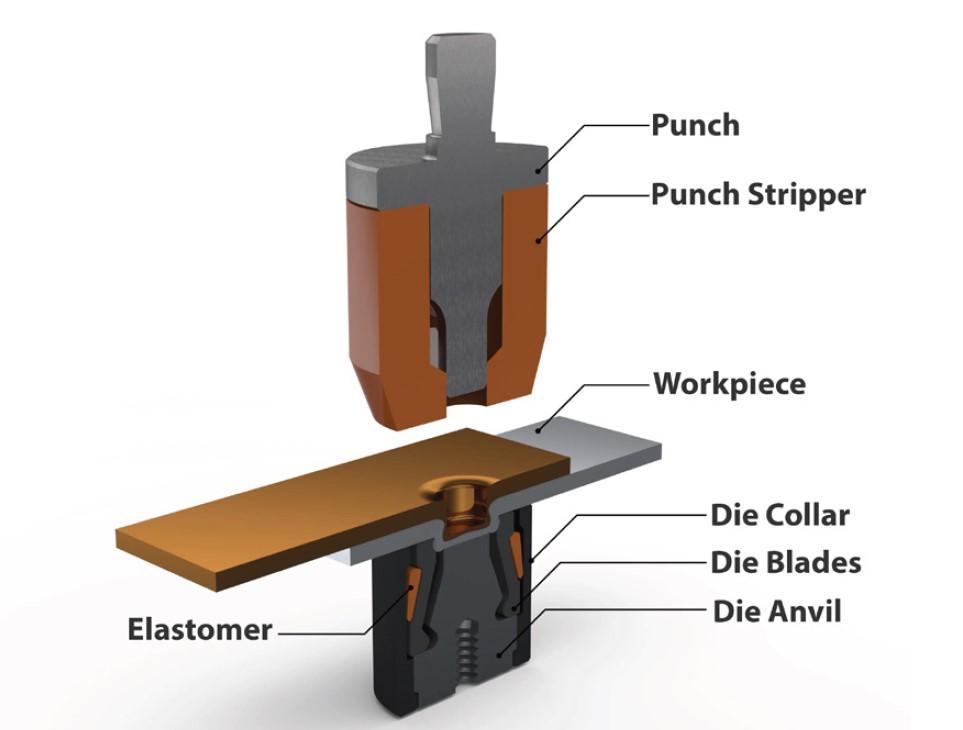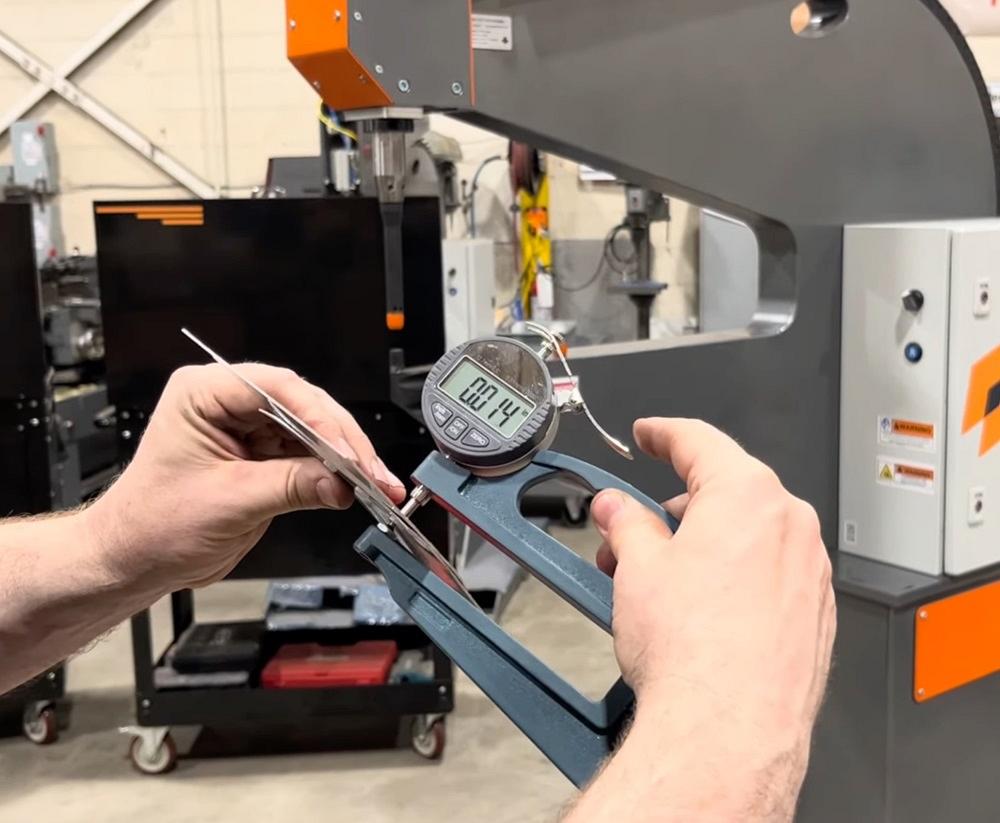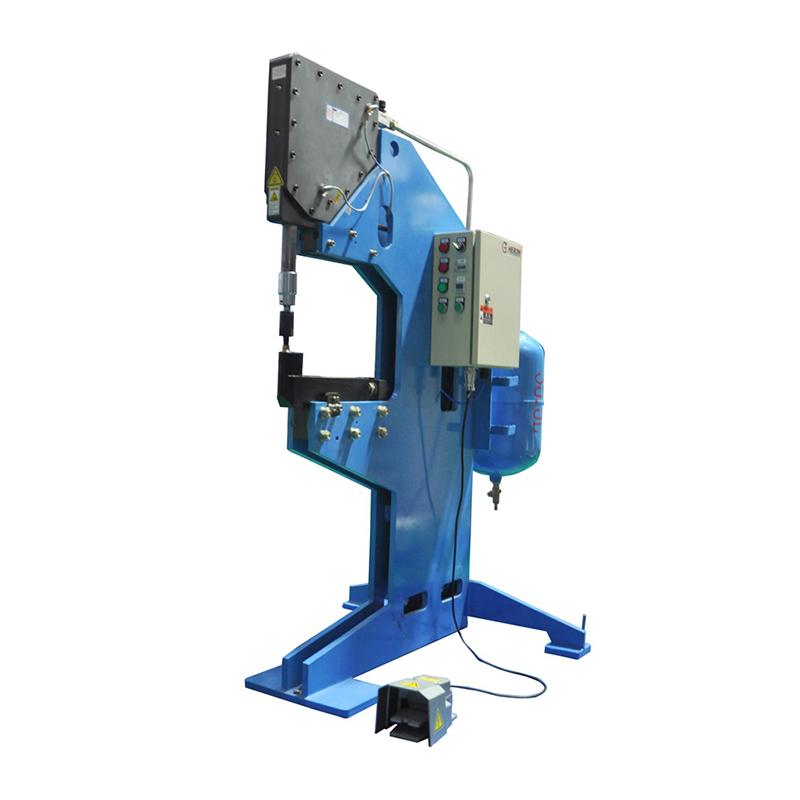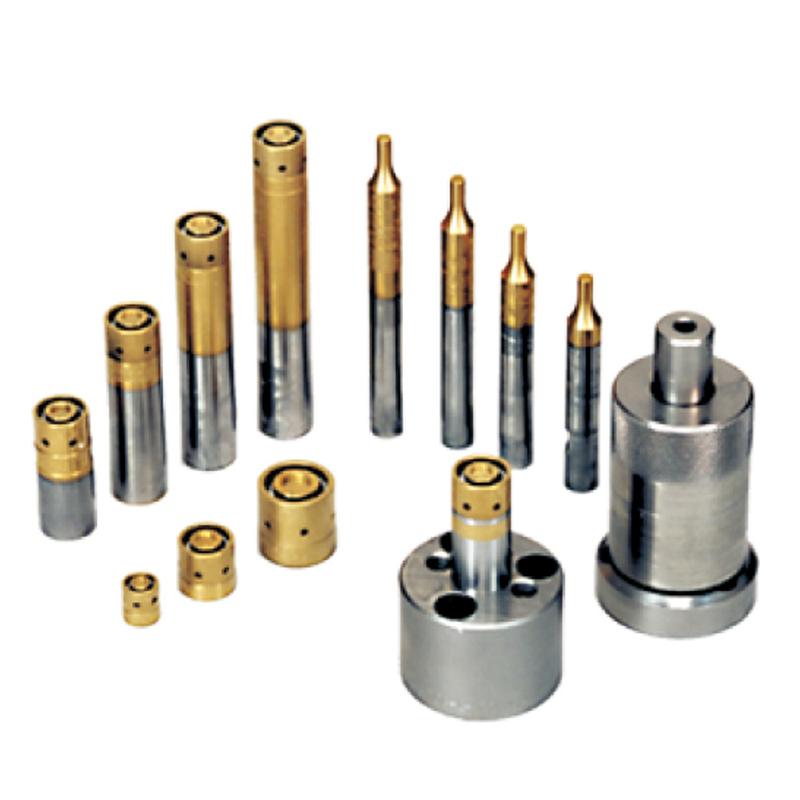Sheet Metal Clinching - Using the part material improves. Clinching joins sheet metal by drawing and forming the part materials into an interlock. In manufacturing, clinching is a mechanical joining process used to join two or more pieces of sheet metal without the need for additional fasteners. Instead of adding hardware, clinching relies on reshaping the metal itself to form a durable. Clinching is the processes of joining sheet metal by drawing a circular button through two sheets, forming a mushroom shape, interlocking them.
In manufacturing, clinching is a mechanical joining process used to join two or more pieces of sheet metal without the need for additional fasteners. Instead of adding hardware, clinching relies on reshaping the metal itself to form a durable. Clinching is the processes of joining sheet metal by drawing a circular button through two sheets, forming a mushroom shape, interlocking them. Clinching joins sheet metal by drawing and forming the part materials into an interlock. Using the part material improves.
Using the part material improves. Clinching is the processes of joining sheet metal by drawing a circular button through two sheets, forming a mushroom shape, interlocking them. Instead of adding hardware, clinching relies on reshaping the metal itself to form a durable. In manufacturing, clinching is a mechanical joining process used to join two or more pieces of sheet metal without the need for additional fasteners. Clinching joins sheet metal by drawing and forming the part materials into an interlock.
Norlok Clinching Machines Conklin Metal Industries
Clinching joins sheet metal by drawing and forming the part materials into an interlock. Instead of adding hardware, clinching relies on reshaping the metal itself to form a durable. In manufacturing, clinching is a mechanical joining process used to join two or more pieces of sheet metal without the need for additional fasteners. Clinching is the processes of joining sheet.
Sheet metal clinching 101
In manufacturing, clinching is a mechanical joining process used to join two or more pieces of sheet metal without the need for additional fasteners. Clinching joins sheet metal by drawing and forming the part materials into an interlock. Using the part material improves. Clinching is the processes of joining sheet metal by drawing a circular button through two sheets, forming.
Sheet metal clinching 101
Instead of adding hardware, clinching relies on reshaping the metal itself to form a durable. Using the part material improves. In manufacturing, clinching is a mechanical joining process used to join two or more pieces of sheet metal without the need for additional fasteners. Clinching is the processes of joining sheet metal by drawing a circular button through two sheets,.
The clinching machine (RIVCLINCH® 0404 IP V3) to assemble metal sheets
Clinching is the processes of joining sheet metal by drawing a circular button through two sheets, forming a mushroom shape, interlocking them. Clinching joins sheet metal by drawing and forming the part materials into an interlock. Using the part material improves. In manufacturing, clinching is a mechanical joining process used to join two or more pieces of sheet metal without.
Applied Sciences Free FullText Clinching of HighStrength Steel
Clinching joins sheet metal by drawing and forming the part materials into an interlock. In manufacturing, clinching is a mechanical joining process used to join two or more pieces of sheet metal without the need for additional fasteners. Using the part material improves. Instead of adding hardware, clinching relies on reshaping the metal itself to form a durable. Clinching is.
Sheet metal clinching 101
In manufacturing, clinching is a mechanical joining process used to join two or more pieces of sheet metal without the need for additional fasteners. Instead of adding hardware, clinching relies on reshaping the metal itself to form a durable. Clinching is the processes of joining sheet metal by drawing a circular button through two sheets, forming a mushroom shape, interlocking.
(German) Clinching technology RIVCLINCH® Joining sheet metal without
Using the part material improves. In manufacturing, clinching is a mechanical joining process used to join two or more pieces of sheet metal without the need for additional fasteners. Instead of adding hardware, clinching relies on reshaping the metal itself to form a durable. Clinching is the processes of joining sheet metal by drawing a circular button through two sheets,.
(English) Clinching technology Joining sheet metal without welding nor
Clinching joins sheet metal by drawing and forming the part materials into an interlock. In manufacturing, clinching is a mechanical joining process used to join two or more pieces of sheet metal without the need for additional fasteners. Using the part material improves. Instead of adding hardware, clinching relies on reshaping the metal itself to form a durable. Clinching is.
TogLLoc Sheet Metal Clinching System Manufacturer Heron
In manufacturing, clinching is a mechanical joining process used to join two or more pieces of sheet metal without the need for additional fasteners. Clinching is the processes of joining sheet metal by drawing a circular button through two sheets, forming a mushroom shape, interlocking them. Using the part material improves. Clinching joins sheet metal by drawing and forming the.
TogLLoc Sheet Metal Clinching System Manufacturer Heron
Using the part material improves. Clinching joins sheet metal by drawing and forming the part materials into an interlock. Clinching is the processes of joining sheet metal by drawing a circular button through two sheets, forming a mushroom shape, interlocking them. Instead of adding hardware, clinching relies on reshaping the metal itself to form a durable. In manufacturing, clinching is.
Instead Of Adding Hardware, Clinching Relies On Reshaping The Metal Itself To Form A Durable.
Clinching is the processes of joining sheet metal by drawing a circular button through two sheets, forming a mushroom shape, interlocking them. In manufacturing, clinching is a mechanical joining process used to join two or more pieces of sheet metal without the need for additional fasteners. Clinching joins sheet metal by drawing and forming the part materials into an interlock. Using the part material improves.
